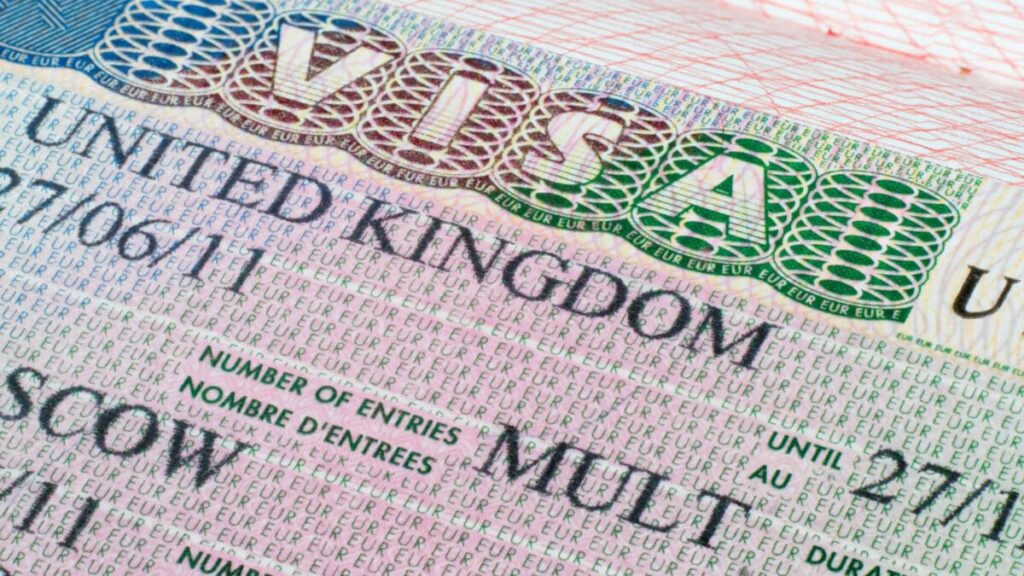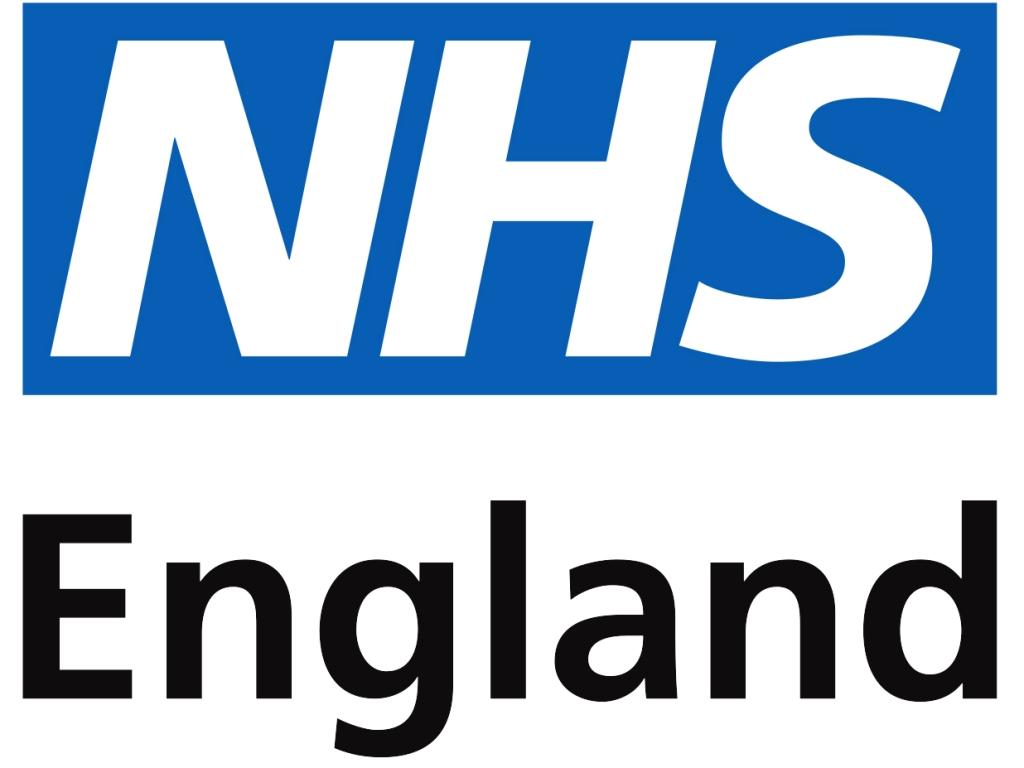How to move to the UK as an American or Canadian
First of all, you need to understand exactly where you want to live in England and that while England is in Great Britain the country is actually comprised of several other nations, which includes, Scotland, Wales and N. Ireland which is actually part of the United Kingdom. Ireland is a separate country and has different rules.
Confused? LOL, doesn’t really matter all you need to know is that the UK is Northern Ireland, Scotland, England( it’s many islands and Wales. Great Britain is actually the landmass that includes Scotland, England and Wales.

Moving abroad Guide
Whether you are a young professional looking to advance your career, a student seeking quality education, or simply someone seeking a change of scenery, this article will guide you through the essential steps and provide valuable tips on how to smoothly move to the UK.
Quality of life in England
As a Canadian we have found the quality of life in England to be much more affordable than in Canada. We lived in Ontario where a 3 bed house would cost us around $3000 Canadian a month plus around $800 in utilities, cell phones, insurance, car insurance, TV Cable etc. Here in the North of England our expenses are £1100 per month for a 3 bed Grade II listed barn conversion. Around £219 for gas and electricity, £150 for council taxes which is water, garbage collection etc. A TV license is £159 a year. For groceries the prices are around 50% of Canadian cost and much better quality – for example for a cheap loaf of bread I can pay .75 pence and a pint of grapes around £1.
First and foremost, you will need to determine your eligibility to move to the UK. Thankfully, as an American or Canadian citizen, you have certain privileges that make the process somewhat easier. For instance, Americans can stay in the UK for up to 6 months as tourists without obtaining a visa, while Canadians can stay for up to 180 days as visitors. However, if you plan to stay for longer or pursue employment or education, you will need to apply for the appropriate visa.

How to plan your trip to the UK and Ireland
- How to move to the UK as an American or Canadian
- Moving abroad Guide
- Quality of life in England
- What you need to know before moving to the UK
- Opening a Bank Account in the UK
- Finding accommodation in the UK
- How to move to the UK: Ancestry Visa or by descent
- Tourist Visas
- I’m an American/Canadian/Australian/New Zealand citizen, can I move to the UK?
- Ancestry Visa – how can I become a British citizen
- How long you can stay on an Ancestry Visa
- What you can and cannot do on an Ancestry Visa
- How do I become a UK citizen?
- Spouse Visa
- Types of Visas for Non-UK/Non-European Nationals
- Long-term visit visas
- UK Study Visas & Tier 4 General Student Visas
- Youth Mobility Scheme Visa
- Business Visitor visas
- Getting Work Visas as a Canadian or American
- UK and Canada tax treaty
- What jobs am I eligible for? Skilled Worker Visa
- The NHS – National Health Insurance in the UK
- Private Health Insurance in the UK
- Living in the UK
Xyuandbeyond is reader-supported. When you buy through links on our site, we may earn an affiliate commission. You can read my privacy policy here.
What you need to know before moving to the UK
Before moving to the UK, there are several things you need to know to make the transition as smooth as possible. Firstly, weather is always a topic of conversation in Britain, so be prepared for unpredictable conditions and always carry an umbrella. Secondly, the cost of living can be high, particularly in cities like London, so ensure you have a realistic budget in place.

It is also important to familiarize yourself with the healthcare system in the UK, as you will need to register with a local doctor and understand how to access medical services. Additionally, understanding the UK’s transportation system is crucial, as there are various options including trains, buses, trams, and the London Underground. Lastly, acquaint yourself with British etiquette and norms, as this will help you assimilate into the culture more easily. Overall, thorough research and preparation will greatly contribute to a successful move to the UK.
Opening a Bank Account in the UK
As a newcomer, navigating the process of opening a bank account can be overwhelming. From choosing the right bank to understanding the required documents and eligibility criteria, there are several factors to consider.
Although most banks and building societies expect you to have a UK address before you can open a bank account, there are some specialist products that have been designed for non-residents and those who don’t have a fixed address, which could be an alternative if you do not meet the standard criteria.

These are the various forms of identification needed: Council Tax bill (for current year) – including online bills. utility bill (dated within last 4 months), including UK online bills. phone bill (dated within the last 4 months). Mobile phone bills are not acceptable. We found it very difficult to open a bank account as we didn’t have any ‘official documentation’ of the kind listed above and we hadn’t yet moved into our rental property to have any bills. We tried Lloyds Bank, Barclays and several building societies with no luck.
We finally decided to see if our Nationwide Account that we had in Northern Ireland was still open and if we could change the address. Luckily this was no problem and we finally had an English bank account. Although in the meantime we used WISE which worked well enough for payments but was a pain to transfer money from Canada as I could only do that through Interact and my account was limited to $2500 for every transaction.
If you open an HSBC expat account in your home country it can be transferable to the UK which can save you a whole bunch of running around.
Finding accommodation in the UK
Finding a rental property in the UK can be a daunting task, especially if you are new to the area or unfamiliar with the local rental market. With so many different options available, it’s important to have a clear understanding of what you are looking for and how to find it.
When determining a budget you should be aware that many rental properties in the UK do not include Council Taxes or rates in with the rent and this can add a great deal to your basic rent. The same goes for utilities such as electric, gas, oil, water and rubbish removal. Check how your potential location is heated as electric heating is the most expensive.

Because you have no rental history or credit rating in the UK you may have to be prepared to pay up to one year’s rent in advance. UK landlords are also not welcoming to pets so you may have to pay an increased rent to allow your pets to stay.
Two of the most commonly used rental platforms in the UK are: Right Move and On the Market.
How to move to the UK: Ancestry Visa or by descent
If you are someone whose descendants come from anywhere in the EU or UK (or Ireland) you may be entitled to a European Union Passport by virtue of descent. This means if your parents and in some cases grandparents were born within the EU or the UK you can apply for a passport from that country.
If you were lucky enough to be born in the U.K, coming “home” will be relatively easy and you won’t need any special visa. I would highly recommend applying for your UK passport from the country where you are currently living before you decide to move to the UK. The earliest you can apply for a visa is 6 months before you travel.
Tourist Visas
If you’re not a UK or EU citizen, then make sure you get your visa arranged prior to leaving your home country. A tourist visa does not give you the right to live or work in the UK. While Americans, Canadians, Australians, New Zealanders and nationals from certain other countries can usually enter the UK visa-free as tourists, this does not give you the right to work.

If you’re caught working without the correct visa, you’ll likely be removed from the country and you could be barred from re-entering the UK for up to 10 years. As a citizen of any of these countries, you can stay in the UK for up to 6 months as long as your passport is valid.
The UK is now no longer a European Union member and over the next few months and years, things will change with regard to visas for the EU. It will still maintain the Common Travel Area with the Republic of Ireland, the Channel Islands and the Isle of Man.
I’m an American/Canadian/Australian/New Zealand citizen, can I move to the UK?
If you’re a citizen of any of the above and you’re looking to move to the UK to stay for 6 months or more, you’ll need to obtain the relevant visa. Work, family, study or investment are all relevant reasons for a visa, however, so you’ll need to apply for whichever visa type you legally need in order to be able to move to the UK.
If you have family or a relative living in the UK with either British Citizenship, settlement or asylum status then you may be able to apply for a Standard Visitor Visa. This entitles you to move to the UK for a period of 6 months or more. You can actually stay for up to 33 months, at which point you can then extend your visa.

Ancestry Visa – how can I become a British citizen
You can live and work in the UK for a period of up to five years with an Ancestry visa, as well as exit and re-enter the UK freely on multiple occasions. You can then begin to apply for indefinite leave to remain (ILR), which can lead to full British citizenship.
You can apply for a UK Ancestry visa if you’re one of the following: a British overseas citizen (Hong Kong), a Commonwealth Citizen (of which there are 56 countries).
However you have to prove that one of your grandparents was born in the UK, Channel Islands or the Isle of Man. The earliest you can apply is 3 months before you travel and if applying from outside the UK it will take a minimum of 3 weeks. The cost is £531, and you will have to pay a healthcare surcharge. You can check how much here.
How long you can stay on an Ancestry Visa
You can stay in the UK for 5 years on this visa. You can apply to extend this visa after 5 years or apply to settle permanently in the UK and apply for indefinite leave to remain.
What you can and cannot do on an Ancestry Visa
With a UK Ancestry visa you can work, study and bring your spouse or partner and children. However you will not be entitled to any public funds.
How do I become a UK citizen?
After living in the United Kingdom legally for five years in a row as a Tier 2 (General) Migrant, you are eligible to submit an application for indefinite leave to stay (ILR) Before you may apply for British citizenship, you will need to have Indefinite Leave to Remain for a minimum of a year.

Spouse Visa
U.K spouse visas are one of the most common visa types. If your husband, wife or civil partner is a British citizen then you can apply through this visa category to live in the U.K. Different from other visa types, a spouse visa will give you the right to work in the U.K whilst living there. You must be able to prove that you’re legally married, that you intend to live together for the duration of your living here and be able to financially support yourself independent of any government funding.
Whichever spouse is a British citizen must also meet the £18,600 per year minimum income requirement for a spouse visa. The same rules apply if you are an unmarried partner who wants to join their boyfriend or girlfriend in the U.K, although you must have lived together for a minimum of 2 years and meet the financial requirements. If there are children involved there is an additional financial requirement for the children.
Types of Visas for Non-UK/Non-European Nationals
A Standard Visitor Visa is the most commonly applied for and it allows you to stay in the UK for a variety of reasons, which can include:
· on holiday or to see your family and friends
· for business, or to take part in sports or creative events
· to receive private medical treatment
· you’re an academic and are doing research or accompanying students on a study abroad programme
· you’re a doctor or dentist and are coming to the UK to take a clinical attachment or observer post
· you want to take the Professional and Linguistic Assessment Board (PLAB) test or sit the Objective Structured Clinical Examination (OSCE)
· you want to get funding to start, take over, join or run a business in the UK
· Take a course of study for up to 30 days as long as it is not the main reason for visiting
· Take part in an exchange program for students under 18
You can check if you need this visa if you’re from outside the European Economic Area (EEA) or Switzerland and see the full list of any business-related activities you can undertake.
You might be able to stay for longer if:
· you’re coming to the UK for private medical treatment – up to 11 months (£179 fee)
· you’re an academic on sabbatical and coming to the UK for research – you, your spouse or civil partner may be able to stay for up to 12 months (£179 fee)
· If you’re staying in the UK as an academic or to receive private medical treatment for longer than 6 months, you must apply for a biometric residence permit.
Long-term visit visas
If you can prove you need to visit the UK regularly over a longer period, you can apply for a visa that lasts 2, 5 or 10 years. You can stay for a maximum of 6 months on each visit. The cost of this Visa is £89 for one year, £337 for 2 years, £612 for 5 years and £767 for ten years.

UK Study Visas & Tier 4 General Student Visas
Student Visas are designed for people from outside the European Economic Area who are doing a short course or some form of study in the UK.
Study visas allow you to stay in the UK for a maximum of 6 to 11 months but it does depend on exactly what you are studying.
A study visa will cost £85 for a 6-month visa and £162 for an 11-month extended visa.
You can apply for a Tier 4 (General) student visa which is for longer-term study if you’re 16 or over and you:
· have been offered a place on a course
· can speak, read, write and understand English
· have enough money to support yourself and pay for your course – the amount will vary depending on your circumstances
· are from a country that’s not in the European Economic Area (EEA) or Switzerland
· meet the other eligibility requirements
It costs £335 to apply for this visa from outside the UK. You must pay £335 per person for any dependents.
You will also have to pay the healthcare surcharge as part of your application. Check how much you’ll have to pay before you apply.
How long you can stay
· You can arrive in the UK before your course starts:
· up to 1 week before, if your course lasts 6 months or less
· up to 1 month before, if your course lasts more than 6 months
· How long you can stay depends on the kind, of course, you’re doing and what study you’ve already completed.
What you can and can’t do
You can:
· study
· work as a student union sabbatical officer
· apply from inside or outside the UK
· work in most jobs – depending on what level your course is and what kind of sponsor you have
Youth Mobility Scheme Visa
You can apply for a Youth Mobility Scheme visa if you: are between the ages of 18-30 you can work in the UK for up to 2 years with a Tier 5 (Youth Mobility Scheme) visa without sponsorship if you:
· Have £2530 in savings
· Have certain types of British Nationality or are from certain countries (Australia, Canada, Japan, Monaco, New Zealand, Hong Kong, Republic of Korea, or Taiwan)
· Meet the other eligibility requirements: you cannot apply if you have:
· children who live with you
· children, you’re financially responsible for
· already been in the UK under the scheme or in the former ‘working holidaymaker’ category diverse country can become a reality.
Business Visitor visas
A business visitor visa is designed for people from outside the European Economic Area who intend to visit the UK as part of their job. Business visitor visas allow you to stay in the UK for up to 6 months (or 12 months if you are an academic visitor).
As a business visitor, you are only permitted to do activities related to your job, but you must be employed by an overseas business corporation and paid via them.
If you are an academic visitor, you should apply for a specific academic visitor visa, which will allow you to stay in the UK to do research or accompany students who are studying in the UK. Family members of academic visitors can also apply for a general visitor or child visa and can stay in the UK for up to 12 months.
Doctors and dentists should apply for the specific Doctors and dentists visa, which permits an individual to undertake clinical assignments in the UK. A business visitor visa costs £84 per person.
Getting Work Visas as a Canadian or American
You can work in the UK either as a Canadian or American if you have received a job offer with sponsorship from a UK employer. You can only apply if you’ve been offered a skilled job in the UK. Your employer must be on the list of licensed sponsors and provide you with a certificate of sponsorship in order to sponsor your move to the UK.
UK and Canada tax treaty
The United Kingdom and Canada have a tax treaty in place to avoid double taxation and prevent fiscal evasion with respect to taxes on income. This treaty outlines the rules for determining which of the two countries has the primary right to tax specific types of income. For example if you have ties to Canada you would claim your income in Canada if earned there.
What jobs am I eligible for? Skilled Worker Visa
This will depend on the individual employer, the type of role, and your relevant skills and experience, and if you are legally authorized to work in the UK as a skilled worker.
Whilst some organisations have a licence to sponsor temporary and/or permanent employees to allow them to work at their business, not all of them will be able to do this.
To find out whether the job is suitable for EU, EEA and Commonwealth citizens, or for applicants outside of these areas, check the job description – or get in touch with the employer directly.
The NHS – National Health Insurance in the UK
The National Health Service or the NHS as it is known here was created in 1948 to provide free health care services for all British citizens.
The NHS includes hospitals, accident and emergency, dentists, and general practitioners along with other medical services.
Residents of the UK have access to the NHS free of charge, and foreign nationals are able to use the service free of charge in emergencies. Prescriptions cost around £9.85 per script and you can purchase a Prescription Prepayment Certificate (PPC) which costs £30.25 for 3 months or £108.10 for 12 months. As an example if you require 4 scripts per month a PPC would save you around £340 per year. Scripts for ongoing conditions such as diabetes are all free of charge.
Foreign nationals can use the NHS free of charge if they intend to take up a permanent residence or if they are claiming asylum. If a foreign national has been a resident in the UK for over twelve months, they are also entitled to free health care via the NHS. More information about NHS services for visitors can be found on the NHS Website.

Private Health Insurance in the UK
Private health insurance in the UK is often viewed as a supplement to the NHS rather than a replacement, offering individuals the flexibility to enhance their healthcare experience. The policies can cover various medical expenses, including specialist consultations, diagnostic tests, and elective procedures. However, it’s essential to note that certain medical conditions may still be treated within the NHS even with private insurance. The presence of both public and private options reflects the UK’s commitment to providing accessible and high-quality healthcare services to its population.
Analyzing data from eight prominent health insurers—Aviva, Axa, Bupa, Freedom, National Friendly, The Exeter, Vitality, and WPA—across 10 towns and cities in the UK, the average monthly cost of health insurance in 2023 is around £86.07, per month and per year £1,032.84.
Living in the UK
Living abroad is a major decision that requires careful planning and consideration. For many Americans and Canadians, the United Kingdom offers a unique blend of culture, history, and opportunities that make it an attractive destination. However, the process of relocating to the UK can seem daunting, especially when it comes to navigating the visa requirements and immigration procedures.
So there you have it, everything you need to know about moving to the U.K. Like I said, in the beginning, various areas have different rules and regulations when it comes to things like the NHS or looking for work but usually there is a citizens advice bureau in these areas that will be able to answer your questions.
You might also like
My Move to Europe – 21 personal stories
International Housesitting & how to get house sitting jobs
Moving to Ireland the ultimate guide
Want to live in Ireland? Here’s how to move there
Good luck with your move to the U.K.
